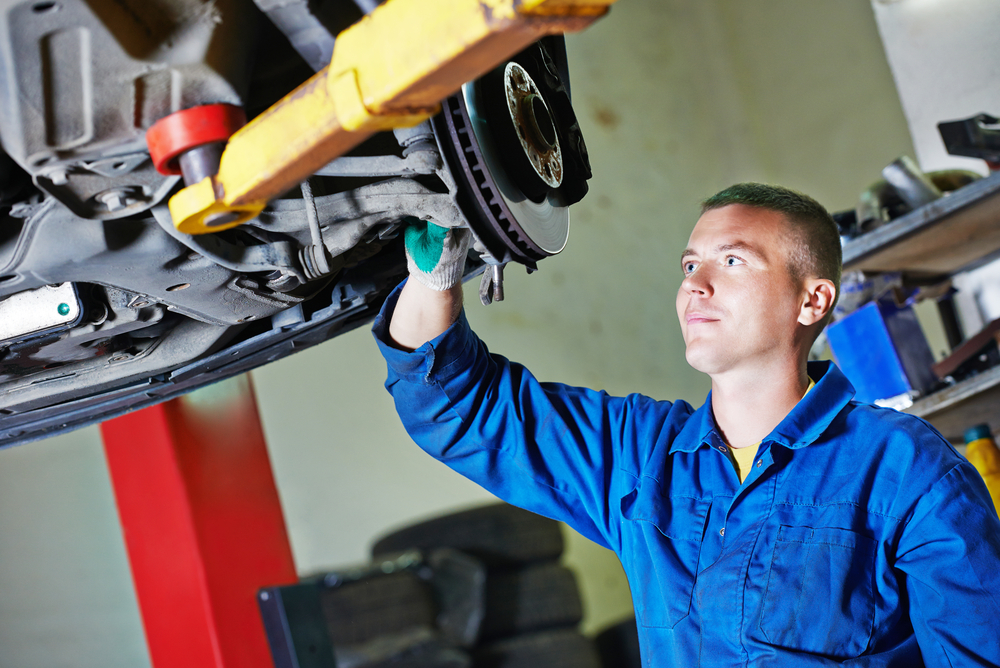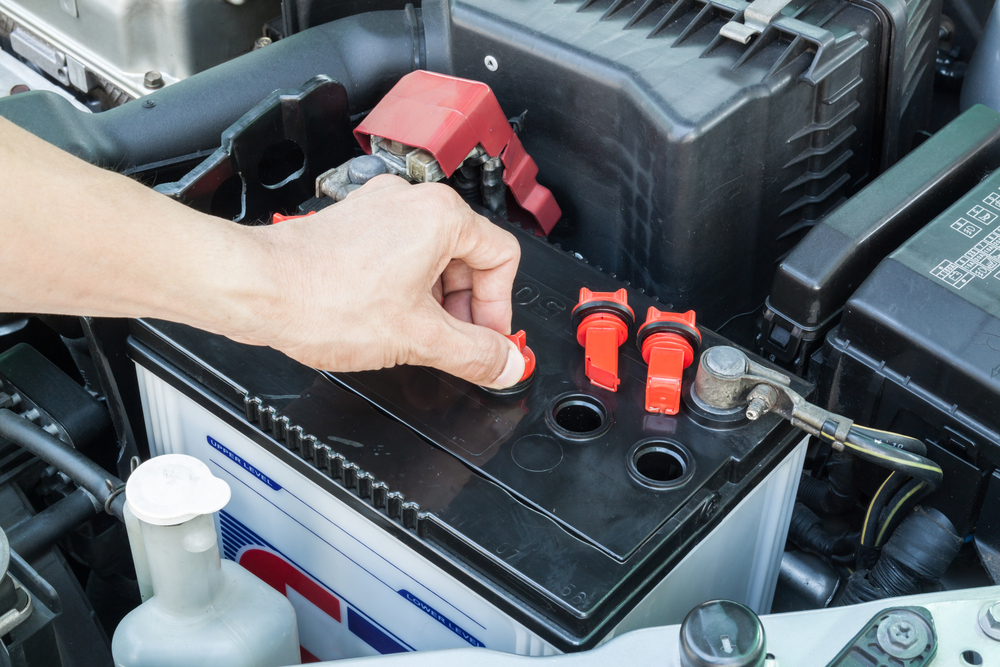-
Basic Auto Repair Tools
Posted on January 3rd, 2016 No commentsA worker is only as good as their tools, and there are certain pieces you simply cannot go without in the auto repair industry. Here are a list of the basic auto repair tools that will be absolutely invaluable to even the most experienced mechanic.

Jack/jack stands
There are several ways to get an auto-mobile off of the ground, though a lot of the more inexpensive options require you to sacrifice your safety. With over a ton of metal balancing precariously over your head, you will never regret purchasing a jack and stands to avoid potential catastrophe.
Screwdrivers, wrenches, and ratchets
No matter the job, it’s near impossible to get by without some form of tightening/loosening tool. Be sure to invest in a variety of lengths to avoid the frustration of having to work in a tight space with a screwdriver as long as your arm.
Hammer and rubber mallet
A hammer is a timeless tool – quite possibly one of the first created. It’s fantastic at what it does, and is perfectly complimented by a rubber mallet for the times when you need to be wary of leaving scratches on the car you are working on.
-
Complicated car repairs you shouldn’t do at home
Posted on December 2nd, 2015 No commentsIf you are looking for good ways of saving money then doing your own car repairs is logical. Replacing oil filter or if you are more adventurous doing you own service is challenging but not unthinkable. However, some jobs should not be attempted. Just like you would never fill one of your own teeth, here are four areas of your car that you should leave to the experts.

Don’t tamper with the timing belt
Occasionally, the timing belt of your vehicle will need to be changed. The mechanics of doing this are not so complicated but if you are not 100 per cent sure of what you are doing it could lead to other problems. This is one of those operations where you pay money to save money and should be left to a qualified mechanic.
Transmission
Changing transmission oil is something you should never attempt. The transmission of your car is complicated and full of tiny parts that interact. Even a small piece of grit in the oil could lead to a major problem so don’t go near.
Overheating
By attempting to analyse and resolve a problem with your car overheating you could cause a big risk of further damage. A mechanic will have the correct tools to find out the problem and take the proper steps to put it right again.
Suspension problems
There is a correct order to replace suspension parts, and you can damage your car if you don’t know what that is. Compressed coil springs, for instance, carry a tremendous amount of energy, and if you start to tamper with them, then you could be putting your life at risk. Don’t mess around with the suspension of your vehicle. Leave it to the professionals.
-
Easy Car Repairs You Can Do At Home
Posted on November 1st, 2015 No commentsRunning a car can get pretty expensive. Not only do you have to fork out for insurance, road tax, and a yearly MOT, but you will have to pay for expensive repairs when things go wrong too. A lot of repairs that are done at the garage are for minor problems that can easily be solved by yourself and at half the price that your local garage charge. Here are three easy car repairs you can do at home to get you started.

1. Replace Your Car Battery or Alternator
One of the most common problems why people take their car to the garage is loss of power. If your car won’t start and your electrical equipment (headlights, radio, or clock) won’t come on then you can bet your bottom dollar that the problem lies with your car battery or alternator.In order to test your battery or alternator you will need a multimeter. Your alternator can usually be found at the front of your engine, and your battery is normally found near the front of the car. When you have figured out the culprit you can then replace it.
2. Replace Your Car’s Brake Pads
Keeping your car’s brake pads in tip-top condition is a must to ensure you limit the risk of having a road accident, and not only causing damage to your car but to yourself too. If you can hear a screeching or grinding noise or your pedal vibrates when breaking then chances are you need to replace your brake pads pronto. The first step to replacing your break pads is to ensure you have the correct tools such as a car jack, a g-clamp and a suitable spanner.First you will need to use your car jack to lift the car so you can remove the wheels to locate your disk brakes. Use your spanner to undo the guide pin bolt, then unbolt the calipers to remove the break pads. Replace and re-attach to your car.
3. Change Your Car’s Oil
Changing the oil in your car is probably one of the easiest do-it-yourself procedures you will perform. In order to change the oil in your car you will need to first find out the make, model, year, oil type and engine displacement size of your car. When you have this information you can then find out what type of oil you will need to purchase for your car.When you have the correct oil run your car for a few minutes to warm up any remaining oil left in it – this will make it easier to drain out. With the engine turned off, lift the car with a car jack and drain out the remaining oil from the drain plug. Then remove and replace your car’s oil filter and refill your oil.

